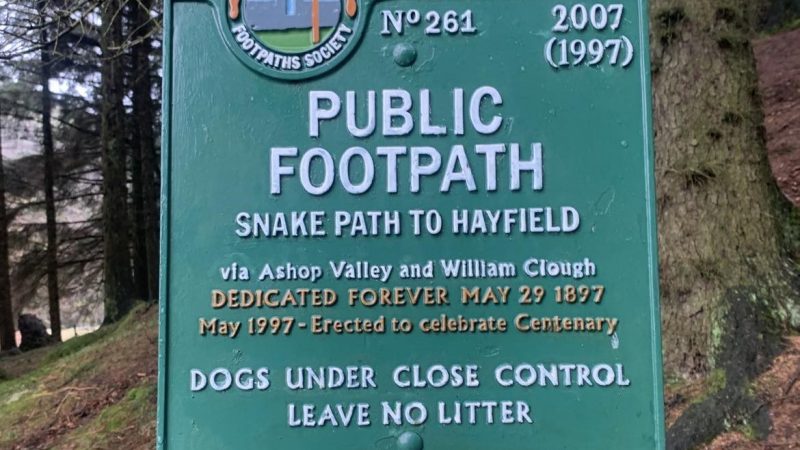Britain’s oldest national conservation charity is calling on Emma Reynolds to prioritise legislation for wider and fairer access to nature.
Access to the countryside in Britain remains heavily restricted due to outdated land laws, limited infrastructure such as public transport, and insufficient provision for disabled access. As a result, many people face barriers when trying to connect with nature. Campaigners argue the ‘right to roam’ is a right, not a privilege.
In England, the public has legal access to just 8 percent of suitable land and only 4 percent of rivers. Walkers are also excluded from around 2,500 landscapes and beauty spots, where the ‘right to roam’ exists in principle but not in law, often forcing many to trespass.
A 2022 study found that the UK ranked lowest among 14 European countries for nature connectedness, and 11th out of 15 for physical activity levels.
Britain’s oldest national conservation charity, Open Spaces Society, which has been defending public access for over 150 years, is calling on the new environment secretary, Emma Reynolds, to prioritise legislation for wider and fairer access to nature.
The Labour MP for Wycombe was appointed secretary of state for environment, food and rural affairs earlier this month, following the resignation of Angela Rayner as deputy prime minister and housing secretary. She replaces Steve Reed in the Defra role.
In the latest issue of Open Space, the Open Space Society’s general secretary, Kate Ashbrook, welcomed Reynolds to her new position. She said she hopes Reynolds “recognises that public access, too often relegated to the bottom of the agenda, is given its proper place in the department’s work.”
Ashbrook noted that it has been 15 months since Labour came to power, a party with a proud history of improving countryside access. While the government has pledged to repeal the 2031 cut-off for registering historic paths, which has already been done in Wales, and to strengthen public access to protected landscapes, Ashbrook asked how and when will it be done?
On 15 September, the All-Party Parliamentary Group (APPG) for Outdoor Recreation and Access to Nature launched a new report in Parliament, offering a set of recommendations to make England’s outdoors more inclusive and accessible. The findings were drawn from contributions by over 750 organisations and individuals.
The report calls for expanded and improved access to land and waterways, better access to so-called ‘blue spaces’ such as rivers and lakes, and a requirement for all children and young people to experience at least one residential outdoor activity to ensure equal opportunity for engagement with nature.
Open Spaces Society welcomed the report, describing it as a head start for Defra. But concerns remain about a lack of follow-through. Although the department has floated the idea of a green paper on access, no progress has been made.
“But that is only the start,” said Ashbrook. “And the time to implement it is ever-shrinking.”
She stressed that some improvements don’t require new laws. For example, existing regulations could be amended to extend the right to backpack camp on access land on access land mapped under the Countryside and Rights of Way Act 2000 (CROW).
“But legislation is vital to win greater rights of access to woodland and water, and to connect access “islands”,” Ashbrook continued, adding there are “countless barriers to access.”
“We tackle some, and get results, but each takes enormous time, effort, and money. The law to reopen blocked paths and free commons from encroachment should be made easier for hard-pressed local authorities, and the public, to use. … We desperately need well-maintained and funded open spaces close to people’s homes (already promised).”
Open Spaces Society is urging Emma Reynolds to act decisively.
“This November we celebrate the twenty-fifth anniversary of CROW, a step change in access. We invite Emma to mark it decisively with another step change, a new law which provides more, better, and guaranteed access for all,” said Kate Ashbrook.
Left Foot Forward doesn’t have the backing of big business or billionaires. We rely on the kind and generous support of ordinary people like you.
You can support hard-hitting journalism that holds the right to account, provides a forum for debate among progressives, and covers the stories the rest of the media ignore. Donate today.




